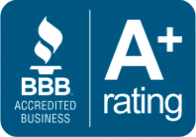Oregon law provides that any interested person may petition a court for guardianship of a person who lacks the capacity to meet the essential requirements for their own physical health or safety. Likewise, any interested person may petition the court for conservatorship of a person who is unable to effectively manage their financial resources. A guardian makes decisions regarding a person’s physical and mental well-being (i.e., living arrangements and medical care), whereas a conservator makes decisions regarding a person’s finances.
A guardianship or a conservatorship (also referred to as a “protective proceeding”) can be a substantial intrusion on a person’s independence. For that reason, Oregon law provides that a guardianship must be designed to encourage the development of maximum self-reliance and independence of the protected person. A guardian may be ordered only to the extent necessitated by the person’s actual mental and physical limitations. In addition, those who petition for guardianship or conservatorship are required to explore less restrictive alternatives.
Proper planning can greatly reduce the likelihood that you or a family member will become the subject of a guardianship or conservatorship proceeding. In addition, it allows you to make decisions now about how you want your affairs to be handled if you become incapacitated or financially incapable in the future. If you have the following estate planning documents, you will often be able to avoid a guardianship or conservatorship.
- Advance Directive: An advance directive gives another person the authority to make health care decisions in the event that you are unable to make your own health care decisions and will often negate the need for a guardian to make health care decisions.
- Physician Orders for Life-Sustaining Treatment (POLST): A POLST form is signed by your doctor and contains orders regarding end-of-life wishes.
- Durable Power of Attorney: A durable power of attorney allows you to give another person the authority to manage money and property on your behalf.
- Revocable Living Trust: A revocable living trust can reduce the likelihood that a conservatorship will become necessary to manage your assets if you become incapacitated.
- Representative Payee: If you receive federal benefits, you may appoint a representative payee to manage the government benefits that you receive from a particular federal agency.
- Declaration for Mental Health Treatment (DMHT): A DMHT details what type of mental health treatment you would like if you have a mental health crisis and cannot make treatment decisions. It also allows you to appoint a representative to make treatment decision on your behalf during a mental health crisis.
While the above alternatives reduce the potential of a protective proceeding being filed, there are circumstances when a protective proceeding is necessary and appropriate. The law regarding protective proceedings is complicated and the alternatives are varied and fact-specific. If you have questions regarding guardianships, conservatorships, or estate planning, please contact BLJ for assistance.
Article By Katie Clason

